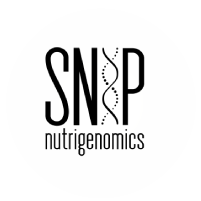In this article, you will discover how different people experience varying reactions to caffeine, influenced by genetics, age, gender, overall health, and medications.
While some individuals are highly sensitive to caffeine, experiencing adverse effects from small amounts, others can handle large doses without negative impacts. For example, genetic factors like the CYP1A2 gene variant can impact caffeine metabolism, leading to differing sensitivity levels. Additionally, our caffeine metabolism changes as we age, and certain health conditions or medications can also alter its effects.
If you’re looking for ways to beat the mid-afternoon slump without caffeine, consider natural alternatives like sunlight exposure, walking, hydrating, eating balanced snacks, taking short naps, visualizing energy, or incorporating a daily wellness supplement to maintain energy without the side effects of caffeine.
Factors influencing how an individual reacts to caffeine include:
- Genetics: Some people have genes that make them sensitive to caffeine.
- Age: As we age, our bodies become less able to metabolize caffeine, so older adults may be more sensitive to its effects.
- Gender: Studies have found that women may be more sensitive to caffeine than men.
- Overall health: People with certain medical conditions, such as anxiety disorders or heart problems, may be more sensitive to caffeine.
- Medications: Some medications can interact with caffeine and alter its effects.
It’s also worth noting that people’s tolerance for caffeine can change over time. Someone once highly sensitive to caffeine may become less sensitive if they regularly consume it. In contrast, someone who was once tolerant may become more sensitive if they stop consuming caffeine for a period of time.
Genetics and their impact on caffeine metabolism:
CYP1A2
Some people have genes that make them sensitive to caffeine. For example, people with a particular variant of the CYP1A2 gene (A/C or C/C) may metabolize caffeine more slowly, leading to a stronger response. On the other hand, people with CYP1A2 A/A alleles tend to metabolize caffeine quickly.
COMT
Another important gene impacting how you experience caffeine is the COMT gene. COMT (catechol-O-methyltransferase) encodes an enzyme that plays a role in the breakdown of catecholamines, including dopamine, epinephrine, and norepinephrine.
However, COMT also indirectly contributes to caffeine’s metabolism through its effects on dopamine levels. Here’s how…
Individuals with the A allele (associated with lower COMT activity) may have slower dopamine breakdown, potentially leading to:
- Slower caffeine metabolism
- Longer-lasting effects of caffeine
- Greater sensitivity to caffeine
In comparison, those with the G allele (associated with higher COMT activity) may be more likely to:
- Metabolize caffeine more quickly
- Tolerate caffeine’s effects more easily
- Experience less caffeine sensitivity
Whether your genes predispose you to metabolize caffeine quickly or slowly (find out here), discovering ways to beat the mid-afternoon slump without relying on caffeine can be helpful.
Here are some top ways to beat the afternoon slump (sans caffeine):
- Get some sunlight: Step outside for a few minutes and let the sunlight hit your face. Sunlight can help boost your mood and energy levels.
- Take a walk: Going for a walk can help increase blood flow and oxygen to the brain, which can help you feel more alert and energized.
- Drink water: Dehydration can contribute to feelings of fatigue, so make sure you’re getting enough fluids throughout the day.
- Eat a healthy snack: Choose a snack that contains a combination of protein and complex carbohydrates, such as a small handful of nuts and a piece of fruit. This can help give you a sustained energy boost.
- Take a short nap: Try closing your eyes and resting for 15-20 minutes. This can help recharge your batteries and make you feel more alert when you wake up.
- Visualise energy: Stop and use your imagination to recall what it feels like to be completely energized and ready to take on the day your body can’t tell the difference between what you think and reality; it will respond as if.
- Take your daily C.O.D.E. Complex to optimize all your body’s systems and genetic expression, including those specifically impacting energy (as well as sleep).
These alternatives to caffeine can be healthier because they don’t have the adverse side effects caffeine can have, such as jitters, irritability, and difficulty sleeping. They can also help you avoid the crashes that can occur after the caffeine wears off.
Test with SNiP today and discover your CYP1A2 and COMT gene status and receive personalized insights via 10+ key health reports, including Energy.


